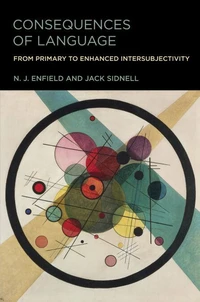The Concept of Action
Par : ,Formats :
- Paiement en ligne :
- Livraison à domicile ou en point Mondial Relay indisponible
- Retrait Click and Collect en magasin gratuit
- Réservation en ligne avec paiement en magasin :
- Indisponible pour réserver et payer en magasin
- Nombre de pages248
- PrésentationBroché
- FormatGrand Format
- Poids0.425 kg
- Dimensions15,3 cm × 22,9 cm × 1,1 cm
- ISBN978-0-521-71965-0
- EAN9780521719650
- Date de parution30/09/2017
- CollectionNew Departures Anthropology
- ÉditeurCambridge University Press
Résumé
When people do things with words, how do we know what they are doing ? Many scholars have assumed a category of things called actions : "requests", "proposals", "complaints", "excuses". The idea is both convenient and intuitive, but, as this book argues, it is a spurious concept of action. In interaction, a person's primary task is to decide how to respond, not to label what someone just did. The labelling of actions is a meta-level process, appropriate only when we wish to draw attention to others' behaviours in order to quiz, sanction, praise, blame, or otherwise hold them to account.
This book develops a new account of action grounded in certain fundamental ideas about the nature of human sociality : that social conduct is naturally interpreted as purposeful ; that human behaviour is shaped under a tyranny of social accountability ; and that language is our central resource for social action and reaction.
This book develops a new account of action grounded in certain fundamental ideas about the nature of human sociality : that social conduct is naturally interpreted as purposeful ; that human behaviour is shaped under a tyranny of social accountability ; and that language is our central resource for social action and reaction.
When people do things with words, how do we know what they are doing ? Many scholars have assumed a category of things called actions : "requests", "proposals", "complaints", "excuses". The idea is both convenient and intuitive, but, as this book argues, it is a spurious concept of action. In interaction, a person's primary task is to decide how to respond, not to label what someone just did. The labelling of actions is a meta-level process, appropriate only when we wish to draw attention to others' behaviours in order to quiz, sanction, praise, blame, or otherwise hold them to account.
This book develops a new account of action grounded in certain fundamental ideas about the nature of human sociality : that social conduct is naturally interpreted as purposeful ; that human behaviour is shaped under a tyranny of social accountability ; and that language is our central resource for social action and reaction.
This book develops a new account of action grounded in certain fundamental ideas about the nature of human sociality : that social conduct is naturally interpreted as purposeful ; that human behaviour is shaped under a tyranny of social accountability ; and that language is our central resource for social action and reaction.




